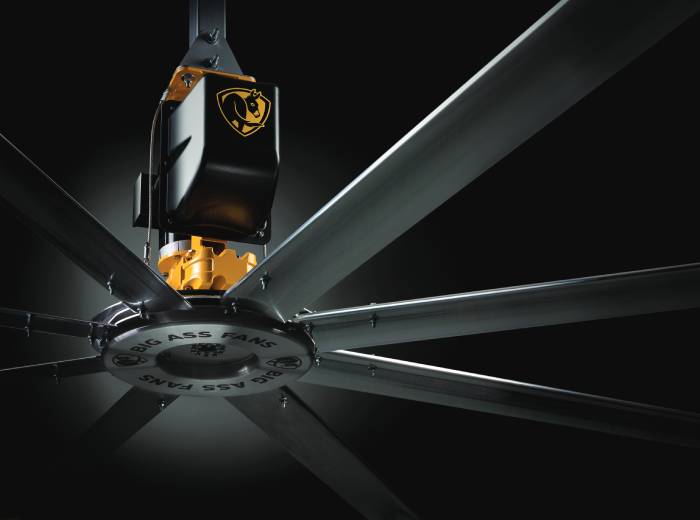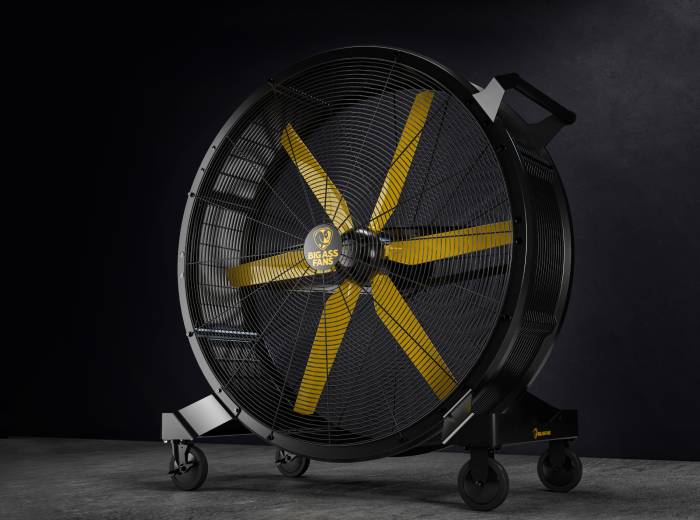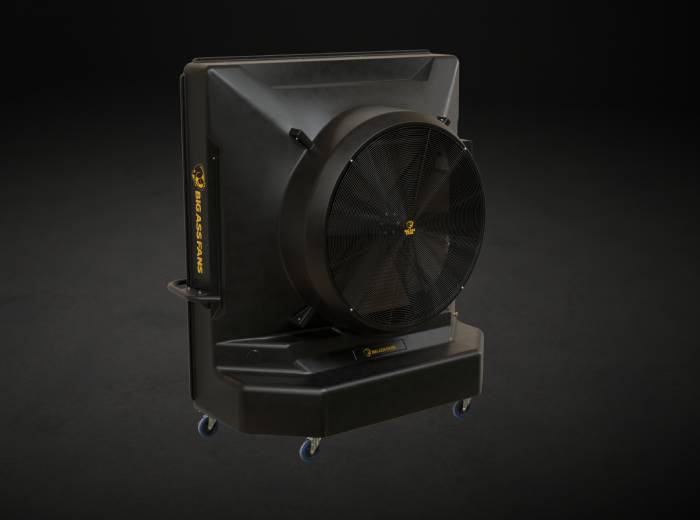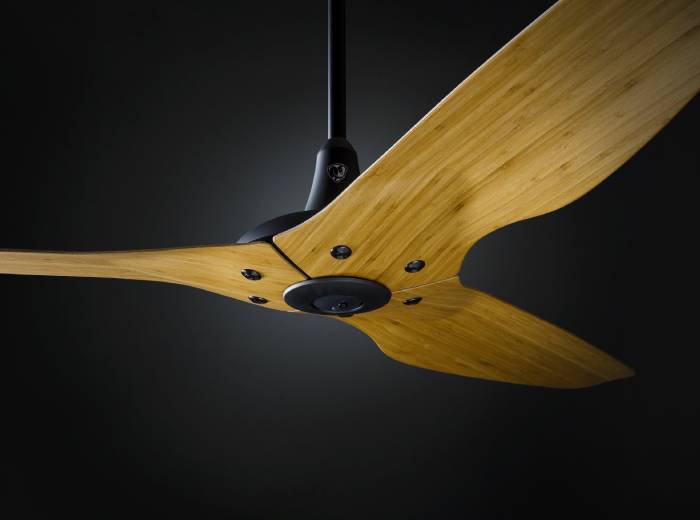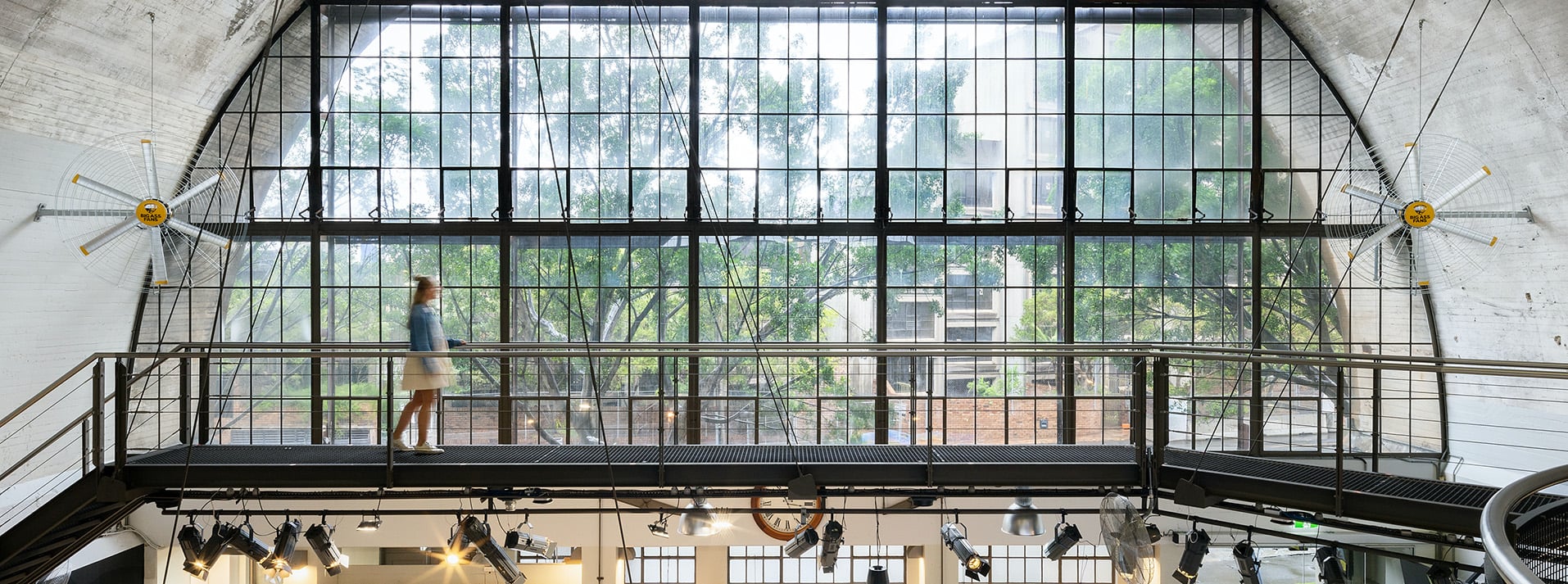
DC Ceiling Fans vs AC - Which Is Better?
Ceiling fans are a popular and efficient way to cool your home, but when it comes to choosing the right one, you might be faced with a choice between AC (alternating current) and DC (direct current) fans.
Understanding the differences between these two types can help you make an informed decision when buying ceiling fans for your home. In this blog, we'll explore the basics of AC and DC ceiling fans, their advantages and disadvantages, and how to decide which is best for your home.
AC vs. DC Ceiling Fan
AC (Alternating Current) Ceiling Fans
AC ceiling fans use alternating current, the standard electrical current supplied by power grids. The current flows in both directions, which makes it suitable for most household appliances, including traditional ceiling fans.
DC (Direct Current) Ceiling Fans
DC ceiling fans use direct current, which flows in one direction. These fans have an internal converter that changes the AC power from your home into DC power, allowing for more efficient operation and advanced motor control.
Advantages and Disadvantages of AC Ceiling Fans
Advantages
- Cost-Effective: AC ceiling fans are generally more affordable upfront compared to their DC competitors.
- Wide Availability: They are widely available in various styles and sizes, making it easy to find one that suits your home decor.
- Simplicity: AC fans have simpler motors, which can sometimes make them easier to repair and maintain.
Disadvantages
- Energy Consumption: AC fans typically consume more energy than DC fans, which can lead to higher electricity bills.
- Noise Levels: They can be noisier, especially at higher speeds, which might be a concern for some users.
- Less Control: AC fans usually offer fewer speed settings and offer less precise control over airflow compared to DC fans.
Advantages and Disadvantages of DC Ceiling Fans
Advantages
- Energy Efficiency: DC ceiling fans are regarded for their superior energy efficiency, using up to 70% less power than AC fans.
- Quiet Operation: They operate more quietly, making them ideal for bedrooms and living areas where noise can be a distraction.
- Advanced Features: DC fans often come with more speed settings, reverse functions, and smoother operation.
- Lighter Weight: The motors in DC fans are typically lighter, making installation easier and placing less strain on ceiling mounts.
Disadvantages
- Higher Cost: DC ceiling fans are generally more expensive upfront than AC fans due to their advanced technology and capabilities.
- Complexity: The advanced motor and electronics can make DC fans more complex to repair if they malfunction.
- Limited Availability: Although becoming more popular, DC fans may still have fewer style and size options compared to AC fans.
Installation and Maintenance
The installation process for both AC and DC ceiling fans is relatively straightforward, but there are some differences worth noting.
AC Ceiling Fan Installation
AC fans are typically easier to install because they have been the standard for many years. Most electricians are familiar with their wiring and setup. You can usually find detailed installation guides and even online tutorials for specific models.
DC Ceiling Fan Installation
DC fans, while not drastically different to install, might require a bit more attention due to their advanced motor and electronic components. The internal converter that changes AC to DC might add a step or two to the installation process. Additionally, since DC fans are lighter, they might be easier to handle during the installation, but it's still advisable to have an extra pair of hands to ensure the fan is mounted securely.
Maintenance
Both AC and DC fans require regular maintenance to ensure longevity and optimal performance, but there are some distinctions in their maintenance needs.
AC Fan Maintenance
Maintenance for AC fans is generally straightforward. Regular cleaning of the blades and motor housing can prevent dust buildup, which can affect performance and cause the fan to wobble. Lubricating the motor (if specified by the manufacturer) can also help maintain smooth operation. Because AC fans have fewer electronic components, diagnosing and fixing issues can often be simpler and less costly.
DC Fan Maintenance
DC fans, with their more sophisticated electronics, might require a bit more attention. While the motors are typically brushless and therefore require less maintenance, the electronic components can be more sensitive to power surges and fluctuations. Regular cleaning is still essential, but if a problem arises with the motor or electronics, it might be more complex and expensive to repair. However, due to their efficient design, DC fans often have longer lifespans and fewer mechanical issues.
 Which is Right for My Home?
Which is Right for My Home?
Choosing between an AC and DC ceiling fan depends on your specific needs and preferences. Here are a few considerations to help you decide:
- Budget: If you’re looking for a cost-effective solution and don’t mind slightly higher energy consumption, an AC fan might be the way to go. However, if you're willing to invest more upfront for long-term energy savings, a DC fan is a better option.
- Energy Efficiency: For those who are environmentally conscious or looking to reduce energy bills, DC fans are a more valuable option due to their lower power consumption.
- Noise Levels: If noise is a concern, especially in bedrooms or quiet areas, DC fans provide quieter operation.
- Control and Features: For those who want more control over their fan’s speed and direction, DC fans offer greater flexibility and advanced features.
- Design and Availability: If you have specific design requirements or need a fan size that is hard to find, you might have more luck with AC fans due to their wider availability.
In conclusion, both AC and DC ceiling fans have their own set of advantages and disadvantages. By considering your budget, energy efficiency preferences, noise sensitivity, control requirements, and design needs, you can choose the ceiling fan that best suits your home.
Looking for a quality ceiling fan for your space?
Whether you’re looking for an AC or DC ceiling fan, we have a range of quality ceiling fans to suit your space.
At Big Ass Fans, we’re here to make your life easier, more comfortable, and less expensive. Explore our range of residential fans (including Haiku Coastal or Haiku indoor ceiling fans), or our range of commercial and industrial fans today.

